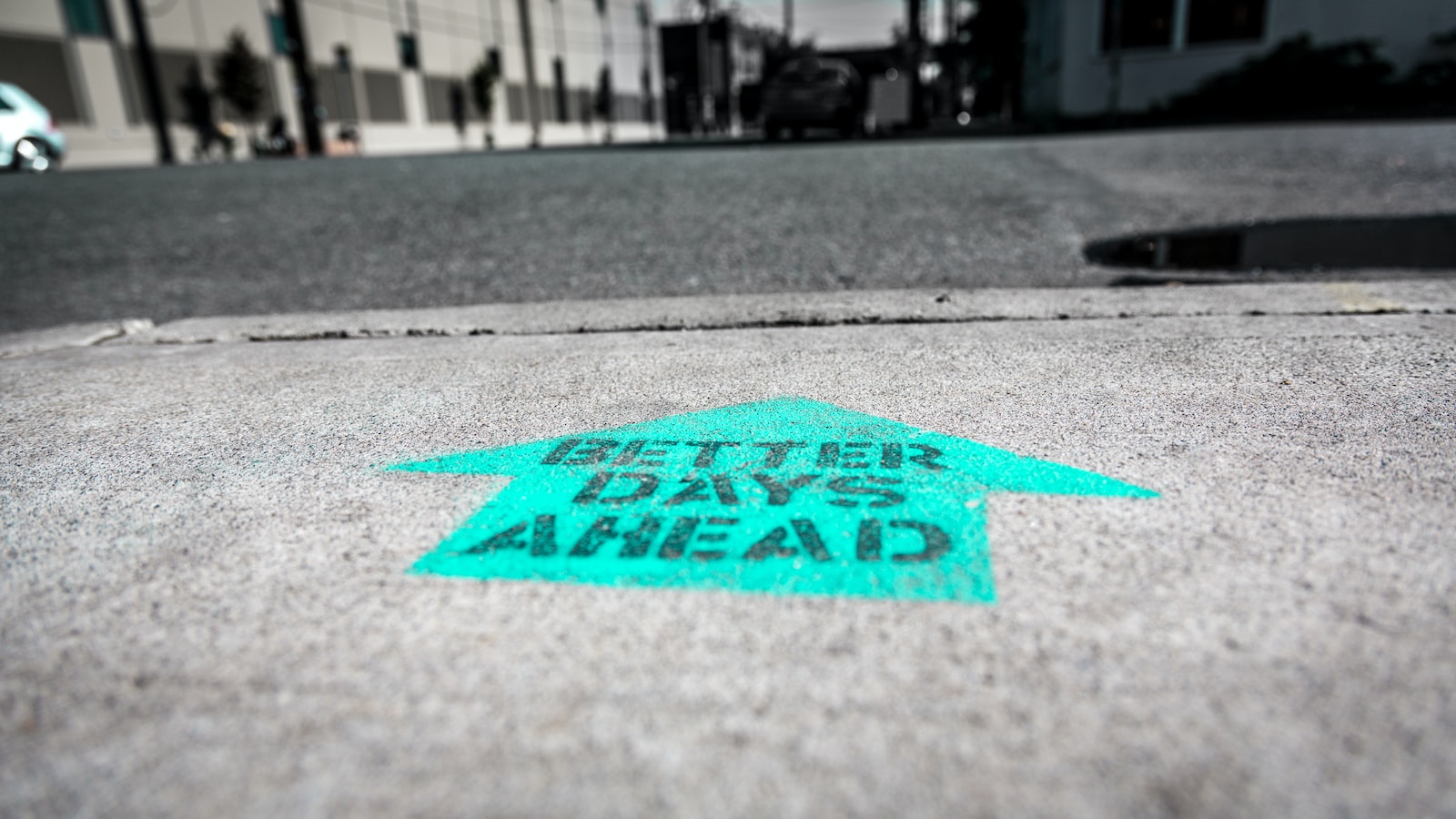Introduction
The Sting of Rejection and the Power of Personal Growth
Rejection is a reality that we all face at some point in our lives. Whether it’s being turned down for a job, not getting a call back after a date or not being invited to an event, rejection can deeply affect our sense of self-worth and make us question our abilities and place in the world. But while rejection can be painful, it’s not the end of the story.
In fact, rejection has the power to propel us forward towards personal growth and self-improvement if we choose to embrace it as an opportunity for learning and change. By focusing on personal growth after experiencing rejection, we can not only overcome the pain but also emerge from it stronger, wiser and more resilient than ever before.
The Importance of Self-Improvement
So why is self-improvement so crucial in overcoming rejection? Because when we focus on improving ourselves instead of dwelling on past hurts, we take back control over our lives and emotions. We become agents of change rather than passive recipients of circumstance.
Self-improvement helps us cultivate resilience by developing new skills, gaining new perspectives and building inner strength. It also boosts our confidence by reminding us that there are things within our control that we can improve upon to become better versions of ourselves.
In short, self-improvement is not just about fixing flaws or overcoming weaknesses; it’s about embracing our imperfections as opportunities for growth and using them as stepping stones towards a brighter future. So let’s dive into how we can cultivate personal growth after facing rejection!
Understanding Rejection
Rejection is something that everyone experiences at some point in their lives. It can be a painful experience that can impact our mental health and well-being.
To define rejection, it is when we are not accepted or approved of by others. This can happen in various situations such as being turned down for a job, getting rejected by a romantic interest, or feeling left out socially.
When we experience rejection, it can have a significant impact on our mental health. It can lead to feelings of sadness, anxiety, and low self-esteem.
Constantly being rejected over time can even lead to depression and other mental health issues. The reason for this is that rejection hurts our sense of identity and makes us question our self-worth.
Common Types of Rejection
There are different types of rejection that people commonly face in life. Romantic rejection is one of the most common forms where one person may express their feelings towards another but then get turned down or ignored by the other person.
Professional rejection occurs when we apply for jobs but get turned down or don’t receive any response from employers after submitting resumes and going through interviews. Social rejection happens when people reject us socially; they may ignore us at parties or gatherings or leave us out of plans.
Many times, it’s tough to overcome these types of rejections because they are personal; they strike at the heart and affect how we feel about ourselves as individuals. However, sharing personal experiences with others who have gone through similar experiences is always helpful because people realize they’re not alone in how they feel about what happened to them—this helps build an empathetic connection between those who have experienced this type of pain before while providing a support system for those currently dealing with it themselves.
The Benefits of Self-Improvement After Rejection
Dealing with rejection is never easy, but it can be a catalyst for personal growth and self-improvement. The challenges that come with rejection often force us to confront our weaknesses and insecurities, which presents an opportunity to grow and become stronger.
When we focus on improving ourselves after experiencing rejection, we are making a conscious decision to take control of our lives and not let external circumstances define us. Focusing on self-improvement also helps in dealing with future rejections.
By working on ourselves, we become more resilient and better equipped to handle setbacks in the future. Rather than wallowing in self-pity or giving up after one disappointment, we can approach each new challenge as an opportunity for growth and learning.
How self-improvement can help in dealing with rejection
Self-improvement is not a quick fix or a one-size-fits-all solution for dealing with rejection. However, it can provide us with the tools and mindset needed to navigate difficult situations more effectively.
By focusing on personal growth rather than dwelling on the past or blaming others for our problems, we can develop greater emotional resilience and mental toughness. In addition, when we work on ourselves, we develop a greater sense of purpose and direction in life.
This means that even if one aspect of our life doesn’t go according to plan (e.g., being rejected from a job), we still have other areas that bring us fulfillment (e.g., hobbies or relationships). This sense of inner fulfillment helps us stay grounded during challenging times.
Highlight the positive outcomes that come from focusing on personal growth
The benefits of focusing on personal growth after experiencing rejection are numerous. For starters, it can help boost our confidence levels by reminding us that we have the power to change and improve ourselves.
Rather than feeling helpless or stuck in a rut, we can take proactive steps towards becoming our best selves. In addition, self-improvement can lead to greater success in other areas of our lives.
For example, someone who focuses on developing their communication skills may not only become better at expressing themselves but also find it easier to build stronger relationships with others. By continually investing in ourselves and our personal growth, we set ourselves up for long-term success and fulfillment.
Ultimately, focusing on personal growth after experiencing rejection is about taking ownership of our lives and embracing change. While it may not be easy or comfortable at first, the rewards are well worth the effort in the end.
Mindset Shifts: Adopting a Growth Mindset
When faced with rejection, it’s easy to fall into a mindset of defeat and hopelessness. However, adopting a growth mindset can help you view rejection as an opportunity for growth and improvement rather than a personal failure.
A growth mindset involves believing that your abilities and intelligence can be developed over time through hard work, dedication, and perseverance. To shift towards a growth mindset, start by acknowledging your negative self-talk and identifying the limiting beliefs that are holding you back.
Then, actively work to challenge those beliefs by focusing on your strengths, setting achievable goals, and seeking out opportunities for learning and development. Remember that setbacks are natural and inevitable on the path towards success – the key is to view them as temporary roadblocks rather than insurmountable barriers.
Self-Care Practices: Prioritizing Your Well-Being
After experiencing rejection, it’s important to take care of yourself both physically and emotionally. This means prioritizing activities that promote relaxation, stress-reduction, and overall well-being. Some self-care practices may include exercise routines like yoga or meditation practices or finding healthy ways to express emotions like journaling or art therapy.
In addition to these practices consider spending more time engaging in activities that bring you joy such as reading books listening to music or even spending time in nature. Avoid dwelling on negative thoughts about the rejection experience instead work on shifting your focus towards positive experiences from life.
Learning New Skills or Hobbies: Stepping Out of Your Comfort Zone
Trying new things can be uncomfortable especially after facing rejection but it’s an effective way of promoting personal growth after a setback experience.To get started consider taking up new hobbies such as cooking or joining groups around areas such as sports,singing etc Learning new skills also helps improve confidence levels which were previously hampered by the rejection experience.
Starting small and working towards bigger goals is key in building a sense of achievement. The best part about this approach is that it helps redirect focus from negative experiences to positive ones.
Seeking Support from Others: Building a Stronger Network
Rejection can feel isolating but remember that you are not alone in your experiences. Seeking support from friends, family, or professionals in your network can help you overcome feelings of shame and self-doubt.
Consider joining support groups or talk to someone who has been through similar experiences as you have and build on their success stories. Seeking out guidance or mentorship from professionals may also be helpful in terms of career related rejections.
Conclusion
Remember, facing rejection is not easy, but it’s important to view it as a learning opportunity rather than a personal failure. Adopting a growth mindset and prioritizing self-care practices are just some of the ways you can promote personal growth after experiencing rejection.
By stepping out of your comfort zone and seeking support from others, you’ll be able to develop new skills, build stronger relationships, and ultimately emerge stronger and more resilient than before. Remember to keep pushing forward with optimism, as every setback is an opportunity for growth towards success!






